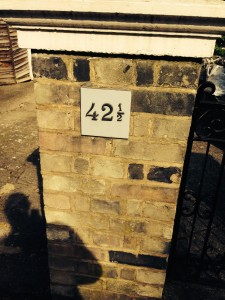 As I’ve already mentioned in posts about the difficulties of playing slow threes (like mazurkas and polonaises), where you can end up accidentally thinking in six-count units instead of eight-bar phrases. It will be no surprise then that I’d rate getting phrasing wrong as one of my worst fears as a ballet pianist. There is nothing quite so embarrassing as losing your place in a musical phrase.
As I’ve already mentioned in posts about the difficulties of playing slow threes (like mazurkas and polonaises), where you can end up accidentally thinking in six-count units instead of eight-bar phrases. It will be no surprise then that I’d rate getting phrasing wrong as one of my worst fears as a ballet pianist. There is nothing quite so embarrassing as losing your place in a musical phrase.
It’s horrible to see anywhere in class, because it’s so difficult to get out of it once it’s happened. At the barre, when you see the whole class turn to the other side when you’re in the middle of a phrase, it makes you feel slightly sick. The worst part is that it probably happened because you were distracted, so at precisely the point where you need all your concentration to pull yourself out of the hole you’ve dug, you’re not even aware of what’s happened, like falling asleep at the wheel. If you’re lucky, an on-the-ball teacher will have realised what’s happened and will glare at you and give you a very loud “five six SEVEN EIGHT” to help you get back into sync with the exercise. Worst of all is when no-one knows where they are, not you, the dancers or the teacher, and you just keep dribbling on at the piano, adding two-count phrases to what you were playing until the exercise grinds to an untidy halt. In an allegro, you may wrong-foot people so badly that you just have to stop and start again.
The more experienced you are the worse it is, because teachers and dancers get used to the idea that you’ll just be with them all the time, so that when it goes wrong, it feels really wrong and the teacher and class all turn and look at you in slight shock. If you’re lucky, they laugh, but I reckon you’ve got fewer lives than a cat when it comes to doing that in a company, so it’s not something that’s easy to laugh at yourself for.
The moment when it happens is excruciating, and it’s one of the reasons that quite early on in my career, I decided to be one of those pianists that played tunes more than I improvised. If you know what a tune does, then you know how to save yourself if you suddenly see that an exercise is going to be three phrases on one side, rather than four, and you don’t run the risk of adding an extra two counts to a phrase because your improvising brain thought it would sound nice.
But tunes can trick you sometimes too: I’ve given up playing The Girl from Ipanema for class recently, because it’s so easy to forget how many times you’ve played the middle-eight phrase. Instinctively, it feels like it should come twice, but it actually comes three times, but when you do this, three times feels like too many so it’s tempting to play it a fourth time to round it up, and then you’re in real trouble. The better written the song, the easier it is to be distracted. One of the things you realise early on as a tune-hunter is that some of the best melodies aren’t regular at all, but sound as if they are, or sometimes sound as if they aren’t, when they are: What’s so clever about that middle eight in The Girl from Ipanema is that the first three phrases of it are in a slow 2 (Oh…/How…/Yes….), but the end of it (But each day….) effectively doubles in tempo, which enables a five-line stanza to fit into a four-square musical phrase. Now that I’ve finally worked out what has wrong-footed me all this time, I might start playing it again.

